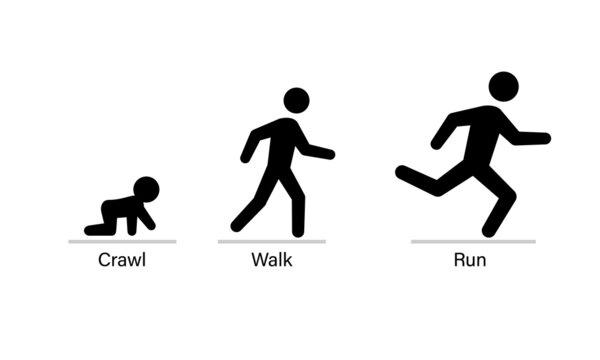뉴스&스피킹(영자신문)
하루 10분이면 영어에 대한 두려움을 극복하고 누구나 유창하게 영어를 구사하실 수 있습니다.
-
 NASA Delays Moon Missions Over Technical, Safety Problems The American space agency NASA has postponed two moon missions that are facing development and safety issues.
NASA Delays Moon Missions Over Technical, Safety Problems The American space agency NASA has postponed two moon missions that are facing development and safety issues.
NASA’s program to return astronauts to the moon for the first time since NASA’s Apollo 17 mission in 1972 is called Artemis. The agency split the program into three parts
In 2022, Artemis I sent NASA’s Orion spacecraft on a trip around the moon without a crew. The agency’s huge Space Launch System (SLS) rocket carried Orion into space. The spacecraft traveled more than 400,000 kilometers from Earth and completed a close fly-by of the moon. NASA officials declared Artemis I a big success.
The second planned trip, Artemis II, was set for late 2024. The goal was to send Orion on the same path Artemis I took, but with four astronauts. NASA announced last week it had set a new September 2025 target for the launch of Artemis II.
The third mission, Artemis III, will attempt to land astronauts on the surface of the moon. NASA says the crew is expected to include “the first woman and the first person of color.” Artemis III was planned for 2025 but has now been pushed back to September 2026.
NASA Administrator Bill Nelson said the postponements were necessary in order to give the agency time to deal with several ongoing problems affecting the Artemis program. “Safety is our top priority," Nelson said. He added that the delays will “give Artemis teams more time to work through the challenges.”
NASA’s announcement about the delays came shortly after the successful launch of a private American company’s spacecraft that aimed to land on the lunar surface.
That spacecraft, called Peregrine, is a moon lander built by Pennsylvania-based Astrobotic Technology. It launched January 8 aboard a Vulcan Centaur rocket built by America’s United Launch Alliance (ULA).
Immediately after Peregrine’s launch, Astrobotic officials praised the mission as the first step to becoming the first private space vehicle to land on the moon. But shortly after the launch, a fuel leak was discovered.
Astrobotic has said the spacecraft would continue on its mission while leaking fuel but faces ongoing power and propulsion problems. The company aims to keep the lander going as long as possible and to collect data from its instruments. But officials from Astrobotic have said Peregrine is no longer expected to land on the moon.
Peregrine is part of NASA's Commercial Lunar Payload Services (CLPS) program. It aims to hand over the nation’s major missions to private companies in an effort to operate at reduced costs.
Peregrine and other planned missions in the CLPS program aim to land on the moon to support future Artemis activities. Another program member, Texas-based Intuitive Machines, plans to launch its Nova-C lander to the moon next month.
Astrobotic has said it also plans to send another lander, called Griffin, to the moon’s south pole in late 2024. It will be carrying an exploring robot, or rover, called VIPER. VIPER is designed to search for water sources on the moon.
NASA’s moon-landing effort has been delayed repeatedly over the past 10 years, adding billions of dollars to the cost, The Associated Press reports. Government estimates have predicted total program costs will reach $93 billion through 2025.
Reuters news agency reported NASA discovered problems with the Orion spacecraft’s batteries during vibration tests. Engineers have said the batteries will likely need to be replaced.
Catherine Koerner is a leader at NASA’s Exploration Systems Development Mission Directorate in Washington. She said in a statement all technical issues will be fully investigated with safety as NASA’s top goal. “We are letting the hardware talk to us so that crew safety drives our decision-making.”
Koerner added, “We will use the Artemis II flight test, and each flight that follows, to reduce risk for future moon missions.” Even with the delays and ongoing concerns, she said NASA is “closer than ever to establishing sustained exploration of Earth’s nearest neighbor under Artemis.”
I’m Bryan Lynn.View -
 In 2024, More Than 60 Nations to Hold National Elections 2024 will go down as one of the most politically important years in history. More than 60 countries will hold national elections representing half of the world’s population.
In 2024, More Than 60 Nations to Hold National Elections 2024 will go down as one of the most politically important years in history. More than 60 countries will hold national elections representing half of the world’s population.
Here is a look at six of the year’s most important elections.
United States
The U.S. presidential election looks to be a rematch between President Joe Biden and former President Donald Trump. The two front-runners have very different opinions on America’s place in the world. The results in November’s race may decide how tough the U.S. will be on China, Russia and other international rivals.
Joseph S. Nye Jr. is the former U.S. Assistant Secretary of Defense. He told VOA that Trump’s “America First” position is attempting to bring isolationism back in foreign policy. That could leave U.S. allies in a difficult position as tensions rise between Taiwan and China, and as the Russia-Ukraine and Israel-Hamas wars continue.
"On Russia," Nye said, "[Trump] is likely to be more favorable to Putin. That means pressure to reduce support for Ukraine is very likely."
As president, Biden has sent military aid packages to Ukraine and Israel, even as he faces opposition from both parties.
Biden is currently behind Trump in the polls in a possible rematch.
Taiwan
Taiwan will hold its general elections on January 13. Although small in size, Taiwan has a big influence over the world economy. More than 70 percent of the world’s semiconductors and about 90 percent of all advanced microchips are made by Taiwanese companies. The question of Taiwan’s independence from China is at the center of conflict between the United States and China going into 2024.
President Tsai Ing-wen is term-limited and will not be running in January. She has warned the public that China is spreading disinformation online to take votes away from the leading presidential candidate, Lai Ching-te. Lai is the current vice president. He has angered China over past comments related to Taiwan’s sovereignty. Lai’s main opponents are taking a softer approach to China.
Some experts worry that tensions between China and Taiwan could worsen if Lai wins the presidency.
Russia
Russia will hold its presidential election in March. Following its invasion of Ukraine nearly two years ago, Russia has become the most sanctioned country in the world. The sanctions have harmed its economy and driven Russia closer to China.
Experts do not expect Russian President Vladimir Putin to lose in 2024. His top political rivals are jailed, exiled, missing or dead.
If Putin wins another six years, Russia will continue "the same brutal agenda in Ukraine and increasingly autocratic policies at home," said Sergey Radchenko. He is a professor of Soviet history at Johns Hopkins School of Advanced International Studies.
Experts say the level of success Putin sees in his war with Ukraine may depend on who wins the U.S. presidential election.
European Union
The European Union is heading for elections in June. Anti-immigration leaders with soft positions on Russia and China are set to push the European Parliament to the right. The Parliament, though, plays only a supervisory role in the EU.
European Commission President Ursula von der Leyen has yet to announce whether she is running for reelection. She has shown strong support to Ukraine and has pressed President Xi Jinping to address China’s large trade imbalance with Europe.
If reelected, von der Leyen would serve as an equalizing force in an increasingly populist European Union. She would work to balance the often-conflicting interests of different member nations with her goal of containing Russia.
The election results will decide is how much pushback von der Leyen’s pro-Ukraine agenda will face from incoming right-wing European lawmakers. That is especially important as Ukraine gets closer to becoming an EU member nation.
India
India holds its general elections this spring. Critics of Prime Minister Narendra Modi and his ruling BJP party say the country’s religious minorities are facing widespread persecution, or unfair treatment. Modi’s Hindu nationalist agenda has gained popularity. Violence against Sikh and Muslim Indians has become increasingly common.
Modi’s government stands accused of killing a Sikh expatriate in Canada last summer and a failed plot to kill a Sikh activist living in New York City in November. Those incidents have affected India’s diplomatic ties with the West.
Modi has a very high approval rating among Indian voters and appears likely to earn a third five-year term. If he wins, Modi is expected to build on the relationships he has made with both Trump and Biden during his time as prime minister.
South Africa
South Africa’s ruling party is at its weakest point since it came to power in 1994. The African National Congress (ANC) is at risk of losing its majority in the legislature. To stay in power, the ANC will likely be forced to form a coalition with other parties.
South Africa is the most industrialized nation in Africa. But with a one-third unemployment rate and power shortages across the nation, some young South Africans are turning away from the ANC.
Still, it is likely that the ANC will stay in charge for the next five years, said Daniel Silke. He is a South African political expert.
The Democratic Alliance (DA) is the largest opposition party. If the DA wins an unlikely victory, there would be “improvement in relations between South Africa and the West," Silke said.
Silke said the ANC remaining in power could make way for an even stronger connection between South Africa and China.
I’m Jill Robbins.
And I'm Dan Novak.View -
 Walk Before You Can Run And now, Words and Their Stories, from VOA Learning English.
Walk Before You Can Run And now, Words and Their Stories, from VOA Learning English.
On this program, we explore words and expressions in the English language. We give definitions, examples, notes on usage, and sometimes we use them in short conversations.
Today we talk about the process of learning to do something.
For example, if you want to play a musical instrument, you need to learn how. You must take small steps. You learn how to hold or sit at the instrument. You learn how to read notes and how to play basic chords. Then you progress to short, easy songs.
In other words, you need to take baby steps.
Babies can look funny when they are learning to walk. Their steps are unsure; their knees do not quite bend fully. They do not walk straight and often fall down. The more they walk, the steadier they get on their feet. Soon their unsteady baby steps lead to a smoother, often speedy, gait.
We often use the term to describe how to reach a complex goal. Small baby steps can lead to the bigger goal.
We will often use the term to suggest that someone slow down and be patient.
A similar English expression goes, “You have to walk before you can run.”
Let’s listen as two friends use these idioms.
A: Hey, how are your piano lessons going?
B: Slowly. I want to play a real song. But my teacher has me working on these same set of chords over and over again! They are difficult and boring at the same time.
A: I’ve been playing piano for years, and chords are important. They are the foundations of music. You need to know how to walk before you can run.
B: I know, I know! But I also MUST be able to play a song by next month.
A: Why are you in such a hurry? Learning music requires patience. Take baby steps!
B: Please no more advice! I told a friend I could play the piano. And now she wants me to play at her children’s birthday party.
A: Oh, in that case. I have other advice for you.
B: What’s that?
A: You reap what your sow.
B: Thanks a lot. … Hey what are you doing next month…?
Learning a language is a lifelong process. To keep yourself from burning out, take baby steps. Learn a little every day, and soon your English will be fabulous!
And that’s all the time we have this Words and Their Stories!
I'm Andrew Smith.View -
 Singapore to End Cat Ban in Public Housing Sunny is a proud Singaporean citizen who follows the laws of her country. Mostly, anyway. For the last three years, she has been illegally sheltering a cat called Mooncake.
Singapore to End Cat Ban in Public Housing Sunny is a proud Singaporean citizen who follows the laws of her country. Mostly, anyway. For the last three years, she has been illegally sheltering a cat called Mooncake.
A 34-year-old Singaporean law bars cats from government-built housing. Such housing is where most of the city-state’s population lives - and Mooncake too, although secretly.
Luckily for Sunny and her cat, Singapore plans to end the feline ban later this year.
The legal change will free Sunny from the threat of a $3,007 fine or her pet's possible removal.
The 30-year-old works in marketing and asked to be identified only by her first name for the security of her cat. She did not want to risk officials removing Sunny from her care.
She wonders about the reasoning behind the ban.
"Cats are so much quieter than dogs. If they allow dogs, I don't understand why not cats."
Officials rarely enforce the ban. And the law is only for the high-rise Housing and Development Board (HDB) buildings. Eighty percent of Singapore’s 3.6 million people live in the buildings.
The ban does, however, make life difficult for cat owners. One problem they face is health care for their animals. Medical insurance cannot be provided for illegal pets.
Lawmaker Louis Ng campaigned to end the ban. He said the law sometimes becomes part of disputes between neighbors.
"A lot of times, the cats are collateral when there's neighborly disputes," he said. One neighbor will threaten to tell police about another neighbor’s cat.
Established in 1960, the HDB plan sells government-built housing directly to citizens for 99-year special agreements. The policy has led to one of the world's highest home-ownership rates. Still, people who live in the buildings are subject to many restrictions and laws.
Cats were permitted in HDB apartments until 1989 when lawmakers changed the housing law. On its website, the HDB says cats are difficult to keep contained in individual homes. It also says that cats drop hairs and other body waste in public areas and can be loud.
It is not clear what made the Singapore government decide to end the cat ban. But a 2022 government public opinion study may have been the turning point. The study results showed 9 out of 10 Singaporeans believed that cats were fit to keep as pets, including in HDB buildings.
Officials are requesting public input on a proposed cat management policy.
Dogs have not been subject to a similar ban, but they are limited to one per household. And, only some kinds of dogs are permitted.
Market research company Euromonitor International has predicted a big increase in cat ownership. It estimated Singapore's current pet population at around 94,000 cats and 113,000 dogs.
Lawmaker Ng, who ran an animal aid group before joining parliament in 2015, also hopes the change will lead more people to adopt rescued cats.
Under the new rules, HDB homeowners would be limited to two pet cats. The rules also require owners to register their pets with the government. The owners must also get special identifying electronic devices for the animals. And, owners must install protective devices on windows so cats do not get out.
Some cat lovers say the new laws do not go far enough.
Thenuga Vijakumar from the Cat Welfare Society wants the law to require sterilization. Another cat rescuer, Chan Chow Wah, urges officials to punish irresponsible owners. He said he had to take care of a cat that fell from a high window in one home. The owners refused to pay its medical bills. Wah also took care of another cat that was abandoned because he had heart disease.
"I end up taking over these cases. Basically, I look after them until they pass away," said Chan, estimating he spent $45,100 on cat medical expenses in 2022.
But for many cat owners the law will bring peace of mind.
Including Mooncake’s: "I think it's a good thing and it's a step forward after 30 years," Sunny said.
I’m John Russell.View -
_3432_1image.jpg) Talking Robot Helps Seniors Fight Loneliness Joyce Loaiza lives alone in a community for older people in the American state of Florida. When she is home, the retired office worker often talks with a friendly female voice that asks about her day.
Talking Robot Helps Seniors Fight Loneliness Joyce Loaiza lives alone in a community for older people in the American state of Florida. When she is home, the retired office worker often talks with a friendly female voice that asks about her day.
A few kilometers away, the same voice helped 83-year-old Deanna Dezern when her friend died. In New York state, it plays games and music for 92-year-old Marie Broadbent. And in Washington state, it helps 83-year-old Jan Worrell make new friends.
The women are some of the first in the United States to receive the robot ElliQ made by Intuition Robotics. The company and other officials say it is the only device using artificial intelligence (AI) to help older Americans from loneliness.
“It’s entertaining. You can actually talk to her,” said Loaiza who is 81. Her ElliQ calls her “Jellybean” for no clear reason. She said, “She’ll make comments like, ‘I would go outside if I had hands, but I can’t hold an umbrella.’”
The device looks like a small table light and it has an eyeless, mouthless head that lights up and turns. It remembers each user’s interests and their talks, helping create a special experience with each new discussion. They can be as deep as the meaning of life or as light as a small joke.
ElliQ also plays music and provides creative or spiritual sayings. On a video screen that comes with it, it will show different cities and places of interest. The device leads exercises, asks about the owner’s health, and gives reminders to take medicines and drink water. It can also support video calls and contact family, friends, or doctors in an emergency.
Intuition Robotics says none of the conversations are heard by the company, with the information staying on each owner’s device.
Intuition Robotics chief executive office Dor Skuler said the idea for ElliQ came before he launched his Israeli company eight years ago. His grandfather who lost his partner needed an aide, but the first did not work out. The next person, though, understood his grandfather’s love of music and his special sense of humor.
Skuler then thought a robot could fill the space of a friend by adapting to each person and their interests. He said, “That just did not exist anywhere.”
The average user interacts with ElliQ more than 30 times a day and more than 90 percent report lower levels of loneliness, Skuler said.
The robots are mostly sent out by state agencies in New York, Florida, Michigan, Nevada and Washington. But they can also be bought individually for $600 a year plus $250 to set it up. Skuler would not say how many ElliQs have been sent out so far, but the goal is to have more than 100,000 out within five years.
Brigham Young University professor Julianne Holt-Lunstad studies the effects of loneliness on health. Holt-Lunstad worries that a device like ElliQ might have short-term helpful effects but it could make people less likely to seek human contact. She told The Associated Press that the difficult feeling of loneliness should push people to reconnect socially.
Skuler and state officials agreed that ElliQ is not a replacement for human contact. But some older people cannot leave home or do not have many friends.
Greg Olsen is director of the New York State Office for the Aging. His office has sent out 750 of the 900 ElliQs it received. He said he wished that he could “make a person show up at the home of one of the many, many older adults that don’t have any family or friends.”
Charlotte Mather-Taylor is director of the Broward County, Florida, Area Agency on Aging. She said the COVID-19 pandemic and its aftermath left many older people more disconnected. Her agency has provided 300 ElliQs which, she believes, help the situation.
She said, “We’ve seen very positive results with it. People generally like her and she makes them smile and brings joy.”
I’m Gregory Stachel.View

